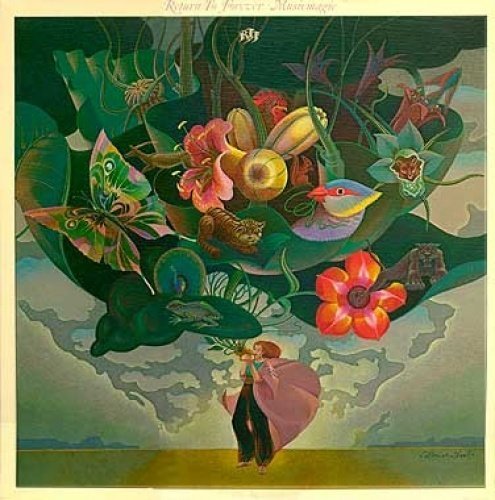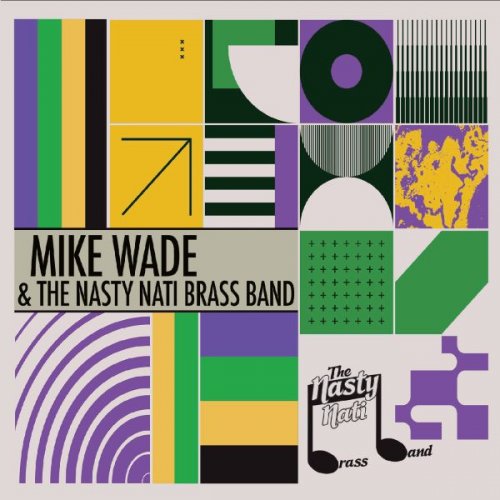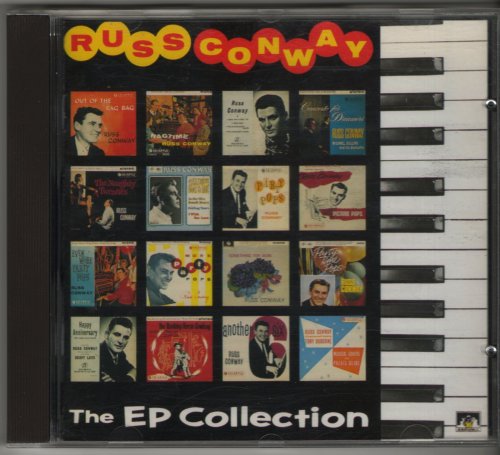Jennifer Walshe - ALL THE MANY PEOPLS (2019) [Hi-Res]

Artist: Jennifer Walshe
Title: ALL THE MANY PEOPLS
Year Of Release: 2019
Label: Migro Records
Genre: Avant-Garde Jazz
Quality: FLAC (tracks) / 24bit-44.1kHz FLAC (tracks)
Total Time: 43:59
Total Size: 203 / 431 MB
WebSite: Album Preview
Tracklist:Title: ALL THE MANY PEOPLS
Year Of Release: 2019
Label: Migro Records
Genre: Avant-Garde Jazz
Quality: FLAC (tracks) / 24bit-44.1kHz FLAC (tracks)
Total Time: 43:59
Total Size: 203 / 431 MB
WebSite: Album Preview
1. In Glorious Mono (27:13)
2. I Still Love You New York (16:47)
Liner notes by Drew Daniel
“Who died by stuffing a chicken with snow?” The astute listener has barely had the time to clock this garbled rendition of Sir Francis Bacon’s death, and with it, the grimly poetic ironies that haunt even the most mundane scientific pursuits, when an even more pressing issue is raised: “How do vampires get boners?” I thought you’d never ask. With manic intensity, caustic wit, and an acute ear for the symptomatic points where linguistic clichés crack open to reveal human fears and longings, Jennifer Walshe has found our culture’s search history, and she is singing its network into vibrant being. When queried about the ingredients from which ALL THE MANY PEOPLS is constructed, Jennifer Walshe offers a list whose voracious breadth of polyglot reference constitutes its own cultural argument:
“Lojban, a language constructed entirely according to the rules of predicate logic; the cast of Lohengrin; certain sections from Watt by Samuel Beckett constituting the first examples of process composition; The Public Enemy (1931) starring James Cagney; KRS-One; U.S. and British soldiers making cell-phone videos of themselves blowing things up and uploading the videos to You Tewbe; Even Dwarfs Started Small; Amazonkom message boards about vampire physiology; Dashboard Confessional; sferics; conspiracy theorist Francis E. Dec; detritus from video game voice-overs; Jackie Stallone; August Strindberg’s Inferno; Cymbalta Discontinuation Syndrome; a Hibernian version of “The Signifying Monkey” as response to the 19th century practice of describing/depicting the Irish as “simian”/apes; The Typing of the Dead; cult Irish martial arts film Fatal Deviation; the collective unconscious as evidenced by Googull Autocomplete; Couradge Wolf; 4Tchan”
Whether this sounds like a crawling, schizophrenic chaos or like a typical day online depends upon how you spend your time. Confronted by the turbulent intensity of the internet as an immersive manifold of mutually competitive media, all users become bricoleurs, scavenging content from film, literature, video games, social media, philosophy, science fiction, pop music, message boards, and search engine ephemera. Far from succumbing to a blur of non-differentiation which levels down distinctions, in the face of this overplus the online self becomes simultaneously more fluid (open to anything) and more selective (you’ll know it when it you find it): customizing, editing down, prioritizing. There’s another word for this process: composition.
At a key point in this one-woman roaratoria, Walshe bursts at breakneck speed into an incantation to the “worldwide computer god Frankenstein containment policy brain bank,” a found fragment of schizophrenic speech which in fact articulates rather precisely the constructivist principles that fashioned ALL THE MANY PEOPLS. The global information ecosystem of the internet (the “worldwide computer god”) is broken into morcellated, dead pieces and fragments and reassembled into an organic body (“Frankenstein”), whose sections are selected according to their expressive intensity and mutually animating rightness of fit (the “containment policy” of composition) and this living body is stored and re-performed by a single, thinking, feeling, art-making human being (the “brain bank” of Jennifer Walshe, composer and performer).
Tilting beyond post-modern parlor games in which “high” culture and “low” culture rub shoulders (as if there could be a singular, common parameter with which to negotiate this kind of surplus, as if the top down structures of expertise and gatekeeping were still in place), Walshe’s “brain bank” operates at lightning speed and a high temperature, offering us what, to take up the parlance of Henri Lefebvre, one might term a “rhythmanalysis” of our media day. This striking solo performance draws upon all of the intuitive nuances and micro-adjustments of a highly skilled vocalist, mimic and free improviser, but Walshe marshalls these immanent interpretive archives of body memory and gut level directness in the service of a conceptually ambitious and radically democratic agenda: revealing the way that the social multitude—the “many peopls” of Walshe’s title—constitutes the raw material from which the assemblages that we call selves emerge. Against the backdrop of a world of contemporary music which all too often seems trapped in a sterile endgame of funding-driven citations of arts council agendas and formerly “avant garde” gestures stripped of force, we need Walshe’s fearlessness, speedy metabolism, and critical ear more than ever. The progress bar has loaded.
Special thanks to Panos Ghikas & Drew Daniel; Blackie Bouffant, Style Kincaid and An Snag Breac.
“Who died by stuffing a chicken with snow?” The astute listener has barely had the time to clock this garbled rendition of Sir Francis Bacon’s death, and with it, the grimly poetic ironies that haunt even the most mundane scientific pursuits, when an even more pressing issue is raised: “How do vampires get boners?” I thought you’d never ask. With manic intensity, caustic wit, and an acute ear for the symptomatic points where linguistic clichés crack open to reveal human fears and longings, Jennifer Walshe has found our culture’s search history, and she is singing its network into vibrant being. When queried about the ingredients from which ALL THE MANY PEOPLS is constructed, Jennifer Walshe offers a list whose voracious breadth of polyglot reference constitutes its own cultural argument:
“Lojban, a language constructed entirely according to the rules of predicate logic; the cast of Lohengrin; certain sections from Watt by Samuel Beckett constituting the first examples of process composition; The Public Enemy (1931) starring James Cagney; KRS-One; U.S. and British soldiers making cell-phone videos of themselves blowing things up and uploading the videos to You Tewbe; Even Dwarfs Started Small; Amazonkom message boards about vampire physiology; Dashboard Confessional; sferics; conspiracy theorist Francis E. Dec; detritus from video game voice-overs; Jackie Stallone; August Strindberg’s Inferno; Cymbalta Discontinuation Syndrome; a Hibernian version of “The Signifying Monkey” as response to the 19th century practice of describing/depicting the Irish as “simian”/apes; The Typing of the Dead; cult Irish martial arts film Fatal Deviation; the collective unconscious as evidenced by Googull Autocomplete; Couradge Wolf; 4Tchan”
Whether this sounds like a crawling, schizophrenic chaos or like a typical day online depends upon how you spend your time. Confronted by the turbulent intensity of the internet as an immersive manifold of mutually competitive media, all users become bricoleurs, scavenging content from film, literature, video games, social media, philosophy, science fiction, pop music, message boards, and search engine ephemera. Far from succumbing to a blur of non-differentiation which levels down distinctions, in the face of this overplus the online self becomes simultaneously more fluid (open to anything) and more selective (you’ll know it when it you find it): customizing, editing down, prioritizing. There’s another word for this process: composition.
At a key point in this one-woman roaratoria, Walshe bursts at breakneck speed into an incantation to the “worldwide computer god Frankenstein containment policy brain bank,” a found fragment of schizophrenic speech which in fact articulates rather precisely the constructivist principles that fashioned ALL THE MANY PEOPLS. The global information ecosystem of the internet (the “worldwide computer god”) is broken into morcellated, dead pieces and fragments and reassembled into an organic body (“Frankenstein”), whose sections are selected according to their expressive intensity and mutually animating rightness of fit (the “containment policy” of composition) and this living body is stored and re-performed by a single, thinking, feeling, art-making human being (the “brain bank” of Jennifer Walshe, composer and performer).
Tilting beyond post-modern parlor games in which “high” culture and “low” culture rub shoulders (as if there could be a singular, common parameter with which to negotiate this kind of surplus, as if the top down structures of expertise and gatekeeping were still in place), Walshe’s “brain bank” operates at lightning speed and a high temperature, offering us what, to take up the parlance of Henri Lefebvre, one might term a “rhythmanalysis” of our media day. This striking solo performance draws upon all of the intuitive nuances and micro-adjustments of a highly skilled vocalist, mimic and free improviser, but Walshe marshalls these immanent interpretive archives of body memory and gut level directness in the service of a conceptually ambitious and radically democratic agenda: revealing the way that the social multitude—the “many peopls” of Walshe’s title—constitutes the raw material from which the assemblages that we call selves emerge. Against the backdrop of a world of contemporary music which all too often seems trapped in a sterile endgame of funding-driven citations of arts council agendas and formerly “avant garde” gestures stripped of force, we need Walshe’s fearlessness, speedy metabolism, and critical ear more than ever. The progress bar has loaded.
Special thanks to Panos Ghikas & Drew Daniel; Blackie Bouffant, Style Kincaid and An Snag Breac.
Download Link Isra.Cloud>>>
ALL THE MANY PEOPLS FLAC.rar - 203.5 MB
ALL THE MANY PEOPLS Hi-Res.rar - 431.1 MB
ALL THE MANY PEOPLS FLAC.rar - 203.5 MB
ALL THE MANY PEOPLS Hi-Res.rar - 431.1 MB
![The Messthetics & James Brandon Lewis - Deface The Currency (2026) [Hi-Res] The Messthetics & James Brandon Lewis - Deface The Currency (2026) [Hi-Res]](https://www.dibpic.com/uploads/posts/2026-02/1771424652_1.jpg)





![William Ackerman - Past Light (1983) [1997 Japanese Edition] William Ackerman - Past Light (1983) [1997 Japanese Edition]](https://www.dibpic.com/uploads/posts/2026-02/1771702726_001.jpg)

